order histories, retained contact details for faster checkout, review submissions, and special promotions.
Forgot password?
order histories, retained contact details for faster checkout, review submissions, and special promotions.
Location
Corporate Headquarters
Vector Laboratories, Inc.
6737 Mowry Ave
Newark, CA 94560
United States
Telephone Numbers
Customer Service: (800) 227-6666 / (650) 697-3600
Contact Us
Additional Contact Details
order histories, retained contact details for faster checkout, review submissions, and special promotions.
Forgot password?
order histories, retained contact details for faster checkout, review submissions, and special promotions.
MAPK14 / p38
mitogen-activated protein kinase 14
MAP kinase p38 alpha, a MAPK type protein kinase, is an environmental stress- and inflammatory cytokine-induced kinase that is associated with the regulation of gene expression, cell proliferation and cell death. p38alpha is phosphorylated by MEK3/MAP2K3 or MKK6/MAP2K6. Activated p38alpha either remains in the cytosol, where it phosphorylates cytosolic proteins including MNK1/2, PLA2 and PRAK, or translocates to the nucleus, where it phosphorylates several substrates, including ATF2, CHOP/GADD153, MAPKAPK-2 and -3, MEF2-A and -C, MSK, Myc binding partner Max and Sap-1a. At least four protein isoforms, resulting from alternatively spliced transcript variants of this gene, have been identified - 297, 307 and two isoforms of 360 amino acids with differing internal segments.
| Gene Name: | mitogen-activated protein kinase 14 |
| Family/Subfamily: | Protein Kinase , MAPK |
| Synonyms: | MAPK14, CSAID-binding protein, CSBP2, CSPB1, CSBP1, Csaids binding protein, CSBP, EXIP, MAP kinase 14, MAP kinase p38 alpha, MAX-interacting protein 2, MAPK 14, p38 alpha, PRKM15, PRKM14, RK, SAPK2A, MAP kinase MXI2, Mxi2, p38ALPHA, p38, p38 MAP kinase, p38alpha Exip |
| Target Sequences: | NM_001315 NP_001306.1 Q16539 |
Publications (3)
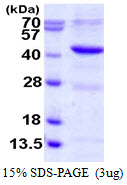
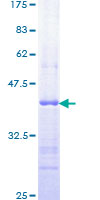
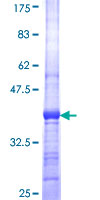



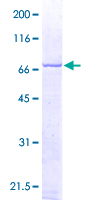
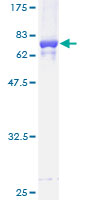
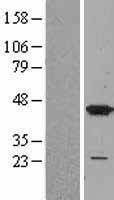
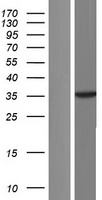
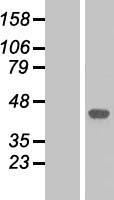



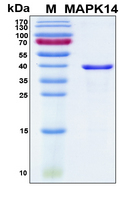

If you do not find the reagent or information you require, please contact Customer.Support@LSBio.com to inquire about additional products in development.









